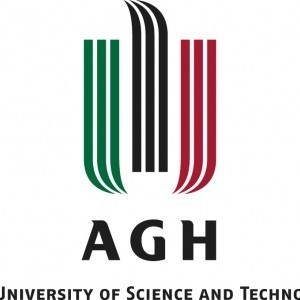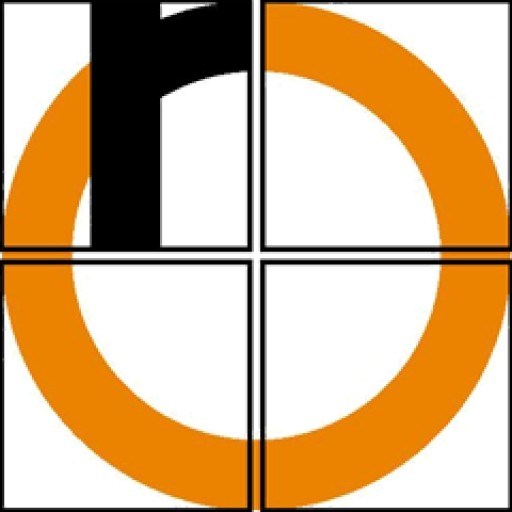Photos of university / #tallinnatehnikakorgkool
The Bionic and Biomimetic Engineering programme at the University of Applied Sciences offers students a unique interdisciplinary education focused on the innovative design and development of technologies inspired by nature. This degree programme combines principles from biology, engineering, and materials science to enable students to create sustainable, efficient, and cutting-edge solutions. Throughout the course, students delve into areas such as biomechanics, robotics, nanotechnology, and bio-inspired materials, gaining both theoretical knowledge and practical skills. The curriculum emphasizes hands-on learning through laboratory work, project-based assignments, and collaborations with industry partners, preparing graduates to tackle complex engineering challenges with an eco-friendly and sustainable approach. Students explore how biological systems adapt, optimize, and function, applying these lessons to develop advanced prosthetics, intelligent robotics, bio-compatible devices, and sustainable materials. The programme also fosters critical thinking, innovation, and problem-solving abilities, enabling graduates to lead the development of new technologies that benefit society and the environment. Emphasis is placed on teamwork, communication, and ethical considerations in engineering practice, ensuring students are well-equipped for the demands of modern industry. Graduates of this programme will be qualified to work in diverse sectors such as medical technology, robotics, environmental engineering, and research institutions. They will possess a comprehensive understanding of biological principles and technical expertise necessary for designing next-generation bio-inspired solutions. The university’s strong emphasis on practical experience, combined with its focus on emerging technologies, makes this programme an excellent choice for students interested in advancing sustainable engineering through biomimicry and bionic design.
The Bionics and Biomimetics program at the University of Applied Sciences offers students a comprehensive education in the fields of biological inspiration and innovative technological development. This interdisciplinary program combines principles from biology, engineering, materials science, and computer science to enable students to develop advanced solutions inspired by nature. Throughout the course, students explore the mechanisms of biological systems, learning how to analyze and emulate these processes in creating new devices, materials, and technologies. The curriculum includes foundational courses in biology and biomechanics, as well as specialized modules in biomimicry design, robotics, material engineering, and sustainable development. Practical training is a significant component, with students engaging in laboratory work, project-based assignments, and internships that provide real-world experience in designing bio-inspired systems. The program emphasizes innovative problem solving, enabling graduates to develop products and technologies that are efficient, sustainable, and environmentally friendly. Topics covered include bio-inspired robotics, synthetic materials mimicking biological tissues, medical devices based on biological principles, and sustainable architectural solutions. Students also learn about the ethical and societal implications of bio-inspired technologies, preparing them for responsible innovation in their professional careers. The program collaborates with industry partners and research institutions to ensure a practical and forward-looking education. Graduates of this program will be equipped with the technical skills, scientific knowledge, and creative mindset necessary to excel in sectors such as biomedical engineering, environmental technology, robotics, and product development. Upon completion, students will be prepared to contribute to cutting-edge advancements in technology inspired by nature, supporting sustainable and innovative solutions to global challenges.
The Bionics and Biomimetics degree program at the University of Applied Sciences is designed to provide students with a comprehensive understanding of the interdisciplinary fields that combine biological principles with engineering and design. The program emphasizes the study of natural systems and structures, and their application to innovative technological solutions. Students will gain a solid foundation in biology, materials science, mechanical engineering, electronics, and computer science, enabling them to develop bio-inspired products and systems.
Admission to the program typically requires a secondary school diploma or equivalent, with a strong background in science and mathematics. Applicants may need to demonstrate proficiency in relevant subjects such as physics, chemistry, and mathematics through standardized test scores or prior coursework. International students are usually required to submit language proficiency certificates, such as IELTS or TOEFL, to ensure adequate communication skills in English.
The curriculum consists of core modules covering fundamental concepts of biology, biomechanics, materials and manufacturing technologies, sensors and actuators, robotics, and computer modeling. Specialized elective courses allow students to explore areas like neuroengineering, tissue engineering, artificial intelligence, and sustainable design. Practical training is an integral part of the program, with laboratory work, design projects, and industry internships providing hands-on experience. These activities aim to develop students’ problem-solving skills and their ability to work in multidisciplinary teams.
To complete the degree, students must undertake a final thesis project that demonstrates their ability to integrate theoretical knowledge with practical application. The project often involves collaboration with industry partners, research institutions, or innovation labs, allowing students to contribute to real-world solutions inspired by biological systems. Throughout the program, emphasis is placed on innovation, sustainability, and ethical considerations, preparing graduates for careers in research, development, and industrial design.
Graduates of the Bionics and Biomimetics program are equipped to pursue careers in fields such as biomedical engineering, drone and robotics development, sustainable materials design, and advanced manufacturing. The program also prepares students for further academic study or research opportunities in related fields. Overall, the program combines theoretical learning with practical skills, fostering an environment conducive to creativity, critical thinking, and technical expertise necessary for advancing bionics and biomimetics technologies.
The financing of the Bionics and Biomimetics program at the University of Applied Sciences is structured to provide students with various options to support their studies. Students can benefit from a range of financial aid opportunities including scholarships, grants, and student loans. Scholarship programs are often awarded based on academic performance, extracurricular achievements, or financial need, and are designed to ease the financial burden of higher education. Additionally, the university collaborates with governmental and private organizations to offer subsidized loan programs, enabling students to finance their studies without immediate financial strain. Part-time work opportunities on or near the university campus are also available, allowing students to earn income while gaining practical experience related to their field of study. Furthermore, some students may qualify for living expense stipends or grants aimed at international students or those enrolled in specialized programs like Bionics and Biomimetics. The university’s financial services department provides detailed guidance on application procedures, eligibility criteria, and deadlines for all financial support options. It is recommended that prospective and current students regularly consult the university’s official website or contact the student services office for updated information on financial aid opportunities. Overall, the university is committed to making education accessible and affordable for talented students by offering a comprehensive range of financial support measures tailored to meet diverse needs.
Bionics and Biomimetics at University of Applied Sciences offers students a comprehensive education in the innovative fields that combine biological principles with engineering solutions. The program emphasizes understanding the structure, function, and processes found in nature and applying these insights to create advanced technological solutions. Students will learn about the design and development of systems and devices inspired by biological entities, leading to more sustainable and efficient innovations across various industries such as medicine, robotics, materials science, and environmental technology.
The curriculum covers fundamental topics including biology, physics, chemistry, and engineering, integrated with specialized modules on biomimicry, bio-inspired design, robotics, and materials. Practical skills are a core component of the program, with students engaging in laboratory work, project-based assignments, and internships to gain real-world experience. This interdisciplinary approach aims to prepare graduates for careers in research, development, and innovation sectors.
The program is designed to foster critical thinking, creativity, and problem-solving skills, enabling graduates to develop sustainable solutions aligned with future technological trends. Students will also explore ethical and societal considerations related to bio-inspired technologies, preparing them to contribute responsibly to technological progress. Collaboration with industry partners and research institutions is a key feature of the program, offering opportunities for students to participate in cutting-edge projects.
Graduates of the Bionics and Biomimetics program will be equipped with knowledge and skills suitable for roles in research institutions, innovative startups, and established companies focused on bio-inspired product development. The program's emphasis on practical application and interdisciplinary collaboration makes it an attractive choice for students interested in shaping the future of technology through nature-inspired solutions.





